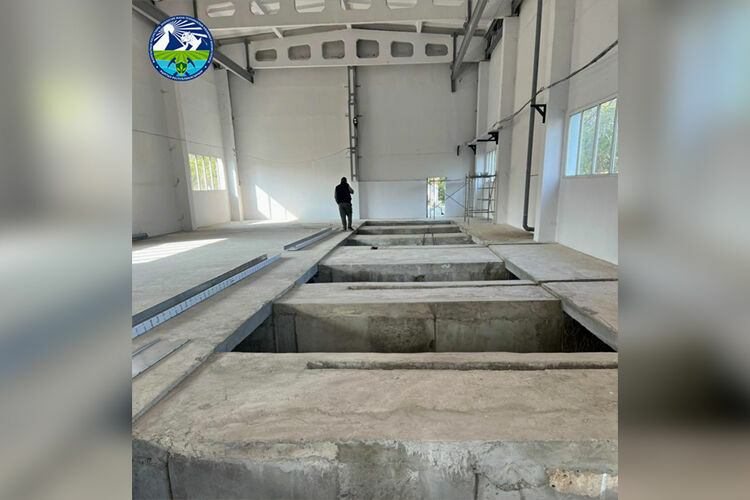Minister of Natural Resources, Ecology and Technical Supervision of Kyrgyzstan Meder Mashiev visited Bishkekvodokanal municipal enterprise, where he inspected the operation of the capital’s wastewater treatment facilities.
The plant’s design capacity is 380,000 cubic meters of wastewater per day, ensuring complete biological treatment to meet maximum permissible discharge standards. Currently, the actual volume of wastewater entering the treatment facility averages 240,000-250,000 cubic meters per day.
The wastewater treatment process includes three stages:
- Mechanical treatment — removal of large impurities using screens and grit chambers;
- Biological treatment — oxidation of organic pollutants in aeration tanks with the participation of microorganisms;
- Disinfection and dewatering — chlorination of treated water and sludge treatment.
For additional purification, the facility operates four biological ponds with a total area of 40 hectares.
The wastewater treatment facilities were commissioned in 1977, and in 1981, construction of the full biological treatment complex was completed.
In 2024, the Bishkek City Hall, represented by Bishkekvodokanal, and the Vietnamese company SFC Investment Development for Environment Corporation signed a 16-year public-private partnership (PPP) agreement to modernize the facilities.
Currently, a large-scale reconstruction of the aeration station is underway at the facility, introducing modern technologies such as ultraviolet disinfection and odor neutralization systems.








